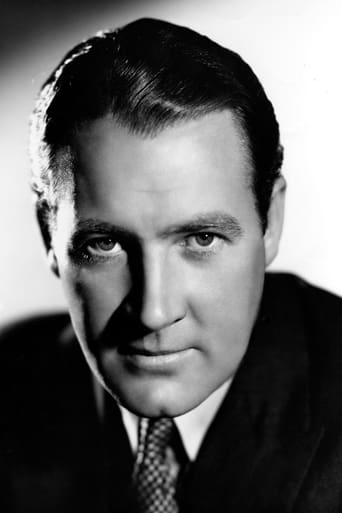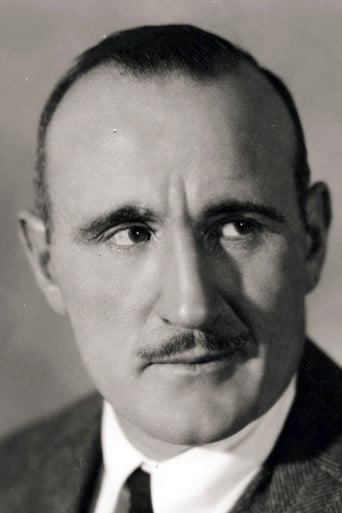Perry Kate
Very very predictable, including the post credit scene !!!
GamerTab
That was an excellent one.
Lightdeossk
Captivating movie !
Brainsbell
The story-telling is good with flashbacks.The film is both funny and heartbreaking. You smile in a scene and get a soulcrushing revelation in the next.
jack patrick
Yes, it's a ridiculous, confusing plot. Yes, the characterizations are clichéd archetypes. The portrayal of her son shows a child yanked around with what we would see today as neglect, or even cruelty. But David fully commits, and elevates the entire enterprise. She is showcased, and provides a subtlety and range of emotion far beyond the script, e.g., she makes her interaction with the child actor believable. Fonda hangs in there, but his character doesn't give him much to work with. And some scenes rise to her level -- especially the conversation with Anita Louise in her wheelchair. We see the characters reacting to one another in an unlikely and awkward plot contrivance, and simultaneously see two skilled actresses working together to make all this believable and even moving. Plus, the wheelchair action is ... remarkable. Davis looks great, beautifully photographed, well-lit, with the famous eyes showcased repeatedly, to great effect. The finale has to be seen to be believed. What the involved viewer expected - and dreaded - is suddenly revealed to have taken place, and the effect is -- hilarious relief. Certainly not a great film, but essential for those who appreciate and admire Davis.
kijii
Here, Davis plays a secretary, Mary Donnell, with a past: she was once married to a mobster when she was very young. He is now dead but the press will not let her forget her past and move forward. Jack Merrick , Jr. (Henry Fonda) is in love with Mary. He marries her—promising to stand on his own feet rather than living off of his wealthy father, (Donald Crisp). But Jack's father first forbids the marriage then, after they get married, he has it annulled, and sweeps Jack off to Europe.However, Mary has Jack's baby and names him Jackie. She is emotionally supported by her maid, Amy (Mary Philips)-who here plays a role something like Thelma Ritter would play in later movies. Mary is also supported by her understanding boss, Lloyd Rogers (Ian Hunter), who has an unhappy marriage and is not-so-secretly in love with Mary. But, his love is unrequited.As the years pass and little Jackie grows, Mary remains in love with Jack: she can't get him out of her mind. Jack marries in Europe and he and his wife, 'Flip' (Anita Louise), are in a bad car accident that leaves her in a wheelchair for life. When Jack and Amy return to America, they both re-enter Mary's life: Jack is introduced to, and falls in love with, his 4-year-old son. 'Flip' makes a point of visiting Mary to ask her to marry Jack so that he can have a 'full life' with Mary and little Jackie.This is one of those Bette Davis melodramas in which she is asked to make personal sacrifice(s), but the movie has too MANY of these moments. In fact until the end, we are left wondering who she will have to sacrifice: Jack?—Jackie?—both?-neither? The only 'villains' of this movie are Jack's father, who continually foils the love between Mary and Jack, and the tabloid newspaper reporters who won't leave Mary alone.Surprisingly, the other women, of the movie (Mrs. Rogers, Flip, and even Amy)--who should resent Mary--are always way TOO understanding towards her. Not only does the movie suffer from an excess of these moments but the ending is WAY contrived too.It's too bad, because the movie seemed to show some promise at the beginning. All this aside, Bette Davis' acting is still the great stuff that we have learned to expect from her.
st-shot
In spite of it's impressive leads and the usually sure handed direction of Edmund Goulding That Certain Kind of Women is a lumbering, mawkish an implausible melodrama. Disjointed at times you get the feeling a reels missing. Where do we begin. Ex-moll Mary Donnell is trying to go straight as an executive secretary for Lloyd Rogers who though married has a thing for Mary. Mary though falls for Jack Merrrick Jr. (Henry Fonda) much to the chagrin of Jack Sr. (Donald Crisp) who gets sonny's marriage annulled by playing hardball with her past. The two part he remarries and she has his kid. Years pass, Rogers dies and leaves her a ton of cash. Junior comes back finds out and vows to leave his crippled wife who pays a visit to Mary before they run off. Enough already.Your drowning in suds in no time in this 30s chick flic that never finds a way to amp up the passion with characters that are tender sensitive and dull beyond belief. Davis stands around looking cow eyed most of the way while Fonda wimps about and Crisp remains stone like. Tina Louise rolls in on a wheelchair in the last act as wife "Flipp" and wrestles with Davis in another cloying moment of tear jerk to see who will make the greater sacrifice. No contest, the audience has.
nycritic
With a title that wouldn't seem out of place in a Harlequin Romance, THAT CERTAIN WOMAN is Edmund Goulding's ultra-soap opera of the weepiest kind. The story of the super self-reliant Mary Donnell, a former bootlegger's wife turned attorney's faithful and efficient secretary. It seems that they might be engaged in something a little over-the-sweater, or maybe he likes her too much and she's just too good to say no, but the Hays Code filtered any naughty-naughty. Where Mary should have been more independent, she's now this saint dressed in self-sacrifice so extreme it gave me a headache at times and made me think Bette's equally self-sacrificing character in ALL THIS AND HEAVEN TOO was closer to Mike Tyson fighting Evander Holyfield. Translation: she made that character fierce in comparison. In short -- Mary Donnell, while is totally and absolutely in love with her boss' client's son Jack Merrick (Henry Fonda, a bit colorless), is unable to fight Jack's mean old father who doesn't want Her in the way. She is, in fact, the quintessential "telenovela" heroine: good to the nth degree, noble to ridiculous levels, passive to the point that you want to smack her like a piñata and see if you get a reaction, sad, and able to bend over backwards farther than Linda Blair doing her spider-walk in order to let things happen, even if it means letting go of her son and even leaving the country. Not that this is a bad thing: it's kept the romance genre alive and well and thriving in newsstands and drugstores alike, but to make a full-length movie out of this without some degree of irony is a bit much. I would have wanted something to happen, let's say, that a monkey-wrench be thrown in for good measure, but bah, this is soap, sap, and sugar down to the bitter end.





